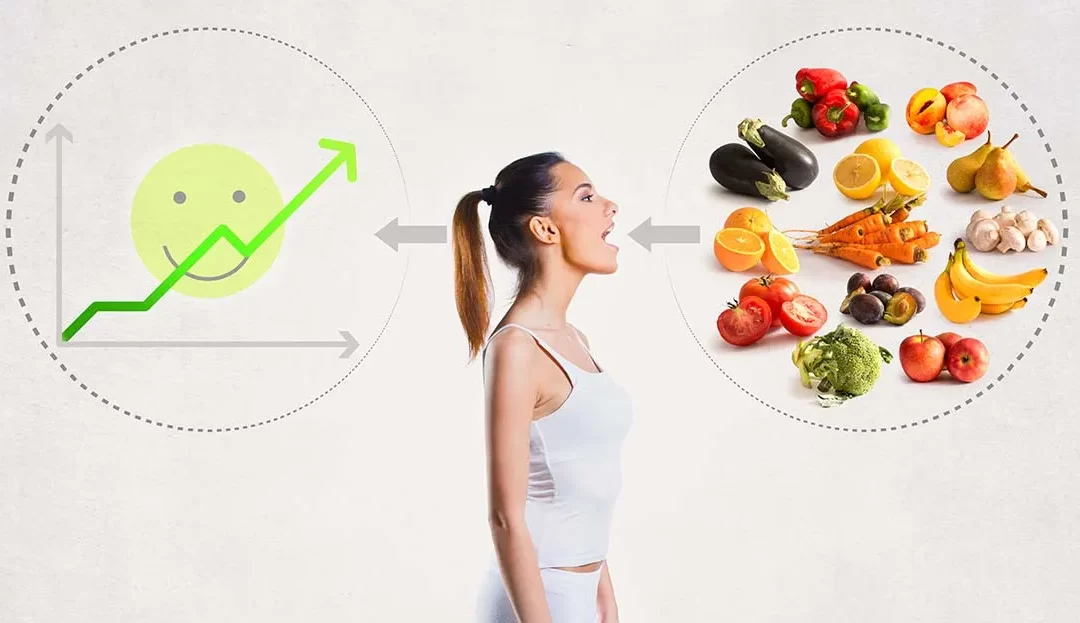Whenever we think about the concept of mental health, our focus turns to the brain—our thoughts, feelings, ideas, and behaviors. But what if I tell you that the secret to a clearer mind and happier mood lies in your gut and it also controls your mental well-being. Yes, latest research has unfolded this fascinating new revelation in our understanding of human physiology that we all have a second brain in our body and that is known as our Gut. This discovery highlights the powerful Gut-Mind Bond, a chemical and physiological link between our gut health and our mental health, which means that the state of our digestive system can significantly impact our mood, stress levels, and even our risk of mental health disorders. So, what is actually happening in this interesting dialogue between your digestive track and your nervous system. Your Gut and mental health are connected. Let’s dive the science and explore how taking care of your gut can lead to a happier, healthier mind.
What is Gut?
The gut is common name of gastrointestinal tract (GI). It’s a long tube that start from the mouth and travels down to end at anus. It includes the stomach, small intestine and large intestine. Its primary function is to digest food, absorb its nutrients and eliminate waste. But it is more than just a digestive organ in body, it houses trillions of microorganisms like fungi, bacteria and viruses that are responsible for breaking down the food into nutrients that the body can easily absorb. Collectively they are known as gut microbiome, our inner universe, which play a crucial role in our overall mental and physical health. How it works is that when we eat different foods like plant fibers, fruits and vegetables, it is what we can’t normally digest. So, that food travels all the way down the colon and is fermented by our gut microbiome and in this process, they produce metabolites that help body digest the food and absorb the nutrients.
What it means to have a healthy Gut?
It basically means having a well-balanced and diverse range of healthy microorganisms, bacteria, fungi and viruses which digest different type of food we eat. So, not having enough or diverse kind of gut microbiome leads to bad gut health, like constipation, blotting and diarrhea etc.
The Gut-Brain Connection: The Second Brain
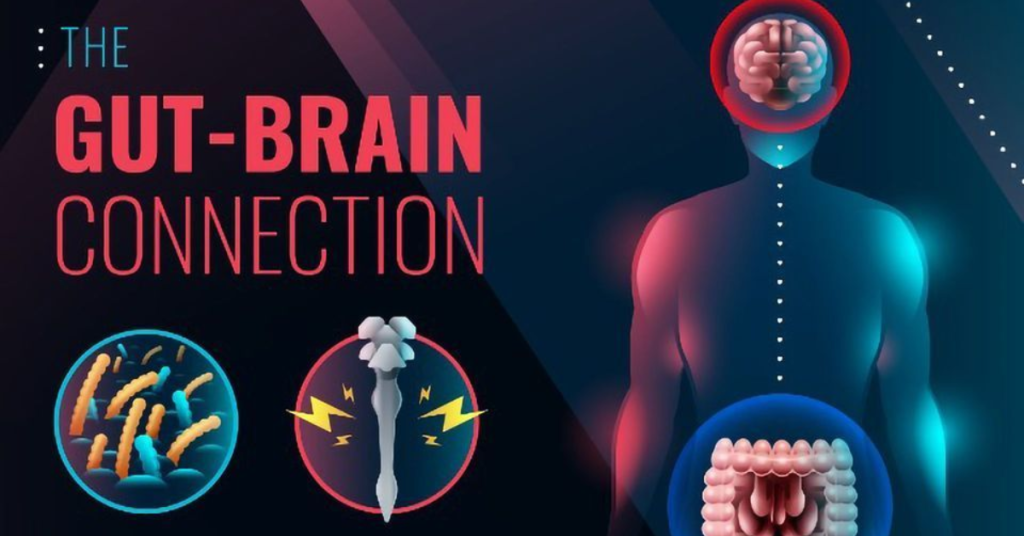
From the last 3 decades of research scientists have discovered that the effects of our gut health go way beyond our digestive well-being. Our gut has massive impact on our mental health. It is commonly referred to as the “Second Brain”. The gut and the brain are in constant communication through a complex network known as the gut-brain axis. This two-way connection involves nerves, hormones, and the trillions of microorganisms living in your gut.
Production of essential Neurotransmitters:
These microbes don’t just help digest food—they also produce neurotransmitters like serotonin, dopamine, and GABA. These neurotransmitters which gives us these great feelings of energy, excitement and happiness. Just like the famous phrase we usually hear “butterflies in the stomach”.
In fact, did you know that 90% of serotonin, the “feel-good” hormone, is produced in the gut? This means that an unhealthy gut can disrupt the production of these vital chemicals, potentially leading to mood disorders like depression and anxiety. Apart from chemical connection, the physical connection between gut and brain is known as Vagus Nerve which controls the parasympathetic nervous system.
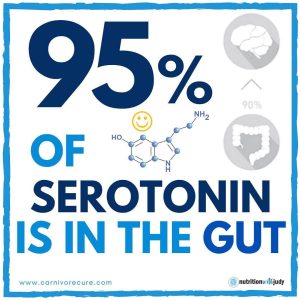
What Shapes Your Gut Health?
Several factors influence the state of your gut, for better or worse:
- Food Choices: A diet rich in fiber, veggies, and fermented foods fuels good bacteria, while processed foods and sugar can harm them.
- Probiotics & Prebiotics: Probiotics (found in yogurt, kefir, and supplements) add good bacteria, while prebiotics (in foods like garlic and bananas) feed them.
- Medications: Overusing antibiotics can wipe out both good and bad bacteria, disrupting your gut balance.
- Stress Levels: Chronic stress can wreak havoc on your gut microbiome.
- Lifestyle Habits: Poor sleep and a sedentary lifestyle can throw your gut out of whack.
Red Flags in Gut-Mind Bond
How do you know if your gut is struggling? Watch out for these red flags: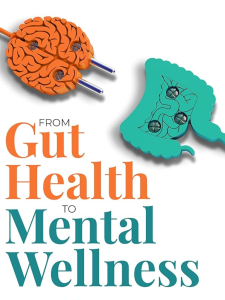
- Digestive troubles (bloating, gas, diarrhea, or constipation)
- Frequent fatigue or low energy
- Skin issues like acne or eczema
- Increased anxiety or feelings of depression
- A weakened immune system (getting sick often)
- Food cravings, especially for sugar or processed foods
If you’re experiencing these symptoms, it might be time to pay closer attention to your gut health.
Inflammation: The Silent Alarm
An imbalanced gut microbiome can lead to chronic inflammation, which has been linked to conditions like depression, anxiety, and even neurodegenerative diseases like Alzheimer’s.
Stress doesn’t just affect your mind
It wreaks havoc on your gut too. Chronic stress can alter the composition of your gut microbiome, leading to digestive issues like bloating, cramps, or irritable bowel syndrome (IBS). Conversely, an unhealthy gut can amplify stress, creating a vicious cycle that impacts both your physical and mental health.
Gut of children:
In the past children used to play outside which exposed them to a lot of microbiomes, processed foods were not that common and they were eating a nutrition rich diet. But now they are inside and are aseptic to outer environment eating all types of unhealthy processed food. This leads to lack of diversity in gut microbiome and a poor gut health. Researches have shown it is related to the cause of Autism, ADHD and other disorders in children.
How to Boost Your Gut-Mind Health
Ready to give your gut some love? Here’s how:
- Eat the Rainbow: Load up on fiber-rich fruits, veggies, and whole grains.
- Add Fermented Foods: Yogurt, kimchi, sauerkraut, and kefir are great for gut bacteria.
- Stay Active: Regular exercise supports a diverse microbiome.
- Manage Stress: Practice mindfulness, yoga, or meditation to keep stress in check.
- Sleep Well: Aim for 7-8 hours of quality sleep each night.
Your Gut is a Powerhouse: Changing the way we see our mental health
In recent times we have realized that we must restore our relationship with gut microbiome for our own physical health. However, yet we’ve still completely underestimated their roles as our second brains. And this is something that is worth noticing. Let’s explore interesting research done in which a mouse was colonized by a special kind of microbe due to which they lose their fear of cats. In fact, they become attracted to cats. The results shown that this microbe takes control of their brain and changes the way it thinks and behaves. So, by delving deep inside the intestinal jungle of bacteria in our intestines, we begun to find some incredible discoveries that is changing our appreciation for bacteria forever. It shows that are our bellies and brains are the gut-brain connection reminds us that our bodies are interconnected systems. By nurturing your gut, you’re not just improving your digestion—you’re also taking a proactive step toward better mental health. Whether you’re struggling with stress, anxiety, or simply want to feel your best, paying attention to your gut health can be a game-changer.
Food isn’t just fuel—it’s the foundation of your thoughts and feelings. So, the next time you feel your mood dipping or your stress levels rising, consider what’s happening in your gut. A healthy gut might just be the key to a happier, healthier you.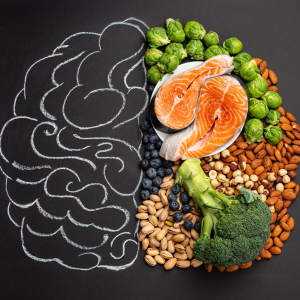
Your Gut-Mind Bond
The Gut-Mind Bond is more than just a theory—it’s a scientific reality proving that our digestive system plays a crucial role in mental well-being. The link between gut health and mental well-being is a powerful reminder that true health is holistic. By making small, intentional changes to support your gut, you can create a positive ripple effect on your mental and emotional state. Strengthen the Gut-Mind Bond with probiotics, fiber-rich foods, and mindful eating, you can improve both your digestion and mental wellness. Start today—your gut (and your brain) will thank you!
What steps will you take to improve your gut health? Share your thoughts in the comments below! Let’s start a conversation about how we can all prioritize our gut health for better mental well-being. And Mind Canvas is here to help you manage your mental health so that you can have a healthy microbiome inside you.

